
Slide deck on exploring the possibilities of Open Educational Resources.
- Subject:
- Educational Technology
- Higher Education
- Material Type:
- Teaching/Learning Strategy
- Author:
- Patrick Smith
- Date Added:
- 09/27/2023

The "Professional Learning and Development Resource Collection" is a carefully curated compilation of Open Educational Resources (OER) dedicated to supporting the continuous growth and development of educators, administrators, and professionals in various fields. This collection is designed to empower individuals and organizations with the knowledge and tools needed to enhance their skills, stay up-to-date with industry trends, and foster a culture of lifelong learning.

Slide deck on exploring the possibilities of Open Educational Resources.

Slide deck on exploring OER textbook alternatives.

Presentation of ethnographic research on AI in higher education and future jobs.

Slide deck on finding OER resources and integrating them into instructional plans.
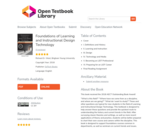
"What is this field?" "Where have we come from as a discipline, and where are we going?" "What do I want to study?" These and other questions are typical for new students in the field of Learning and Instructional Design Technology. This textbook is designed to help answer these questions and provide the quickest route to understanding the history and current trends in the field. After surveying classic theories and writings, as well as more recent applications of theory and practice, students will be better prepared to chart their own course and careers within the discipline. This book is designed to support foundations courses common in departments, as well as seminars on current trends and issues.
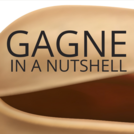
A half sheet printable to scan a QR code which takes the learner to a scorm package which gives an overview of Gagne. There are also videos included in the package.
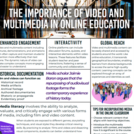
A handout that provides key areas in which the use of multimedia in online education is helpful and important, including: student engagement, interactivity, global reach, media literacy, the benefits of the flipped classroom, and movies and video as historical record It also provides tips for using multimedia in online education.
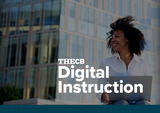
This guide is designed to help educators navigate the Digital Instruction Hub on OERTX and discover how to incorporate Open Educational Resources (OER) into their courses to foster interactive and inclusive learning experiences.

A description of the Ka'ao Framework, developed by Hawai'i Community College. This model introduces a cultural focus to the course design process.

This book is designed to serve as a textbook for classes exploring the nature of learning in the digital age. The genesis of this book is a desire to use OERs in all my teachings, coupled with the realization that the resources that I was looking for were not available and as such I needed to contribute in creating them. It is thus a small attempt to contribute to the vast repository of Open Educational Resources. When discussing learning in the digital age, most focus on the technology first. However, the emphasis made in this book is that it’s about the learner not just the technology. One of the things that is easy to lose track of when talking about learning in the digital age is the learner. Technology is important and it has significant impact but it is still about the person who is using the technology. Many people conflate learning in the digital age with technology in today’s age. This important misconception is common and results from our failure to examine our understanding of what “learning” really is.

In a technology-driven environment, we assume most people are comfortable learning online. The ubiquity of digital communication, automated assistance, and constant connectivity support this assumption, but many of us lack the skills needed to navigate digital resources and technologies in an academic setting. Learning in a Digital Age (LiDA) is a credit-bearing course designed to improve digital learning literacies for higher education and help learners gain more value from open educational resources (OER).
In this course, you will develop the digital and learning literacies to maximize their learning in a contemporary digital learning environment for higher education. You will develop the academic skills to discern the credibility, accuracy, and integrity of open access resources available on the Internet and corresponding digital tools to research, analyze, and present information for academic purposes.
You will also develop competence in a range of digital tools, including social media, communication and collaboration tools, and publishing tools to support learning in contemporary society. This will include knowledge of copyright, open licensing, media literacy, and digital citizenship.
This course is offered concurrently in partnership with OERu. You are more than welcome to work through all four sections at your own pace, but you may be able to interact with more students if you follow the schedule used by OERu and their community of learners.
This course includes the following sections:
Digital Skills for Online Learning (LiDA101)
Digital Citizenship (LiDA102)
Open Education, Copyright, and Open Licensing in a Digital World
Critical Media Literacy and Associated Digital Skills (LiDA104)

When choosing a small team to keep your department running during slow periods, consider what's truly essential. Though every department has different needs, focus on covering critical tasks. Select people who can handle the core functions that must continue even with reduced staffing. This will help maintain operations until business picks up again.
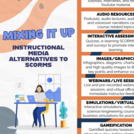
A guide to instructional media alternatives to SCORMS within an LMS.

Slide deck on the topic of authoring OER material.

Welcome to Texas Learn OER! Your learning includes a series of self-paced online learning modules. The first nine modules will serve as an introduction to open educational resources (OER) and as an opportunity for further exploration and discovery of open education practices. The tenth module serves as a final assessment of your learning. Throughout the modules there are opportunities for you to test your knowledge and further explore a concept. The modules allow you to learn at your own pace.

A compilation of OER repositories.

Slide deck from SHSU's OER and Copyright training.

Infographic discussing trends in online learning.

Slide deck from Digital Education Summer 2022 on open image sites and their integration into online teaching.

The attached file serves as an exemplary template for structuring an online course into modules over a 15-week semester. The outline demonstrates effective course design principles including:- Organizing content into manageable weekly modules - Incorporating diverse learning materials - Building in recurring assignments- Scaffolding assignments to develop skills over time- Aligning objectives, activities and assessments following Bloom's taxonomy for higher order critical thinking.- Providing a clear learning arc through the sequence of modules and summative comparative assignment.